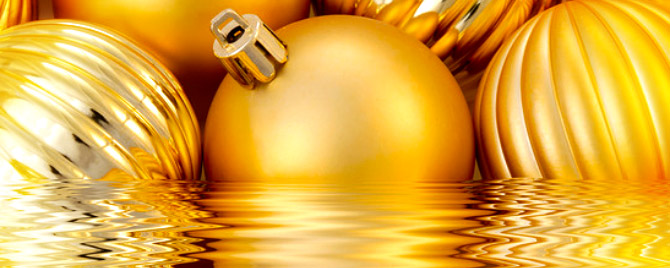The holidays are almost here, and the last thing you want is a blocked kitchen drain when you have guests over for Christmas dinner. Not only is it inconvenient if you can’t use the sink, but it can give off odors that are quite unpleasant. Here are three of the main culprits that cause kitchen sink blockages, and some tips on how to prevent them from spoiling your festive season this year.
Grease
This is a favorite around Christmas time. When that turkey comes out of the oven and the recipe book says “pour off excess liquid” it doesn’t mean pour it down your kitchen drain. Unfortunately, what if you’re being helped with the cooking by less experienced, somewhat younger members of the brood? If they aren’t as experienced with the sensitivity of the kitchen sink as you are, you might find them doing exactly that, because – well, it’s liquid. Y’know?
Take steps before this happens by explaining that the liquid from the turkey is chock-full of fat, even though it doesn’t look like it when it’s piping hot. When this is poured down the kitchen drain, however, it cools and gets thick and sludgy. Depending on the percentage of water in the mix, it can harden completely. Even if it doesn’t cause a blockage on its own, it coats the insides of the drainpipe causing bits of food to become stuck in the sludge and eventually clog it completely.
Allow excess liquid to cool and pour it into a used container with a reliable seal. Close it tightly and dispose of it safely into the general garbage or take it to your nearest depot after the holidays.
Bits ‘n Pieces
Wiping off that chopping board over the sink, rinsing it in washing water or wiping the counter with a cloth and then washing it out are practices we all do without thinking. Or rinsing off and prepping the crockery for the dishwasher?
Every time you do so, a small number of breadcrumbs, rice, tomato pulp and spilled sugar land in the water. And guess what? Said bits and pieces go down the kitchen drain, usually with a good sluice of water to carry them through without mishap. But what if there’s grease in the pipe (see above)? Or if your drainage system is old and the pipes have begun to rust, causing a rough inner surface that acts as a magnet for all the crumbs?
Before this happens, catch yourself the next time you wipe the counter. Ask:
- What’s in the cloth?
- Where are you planning to dispose of it?
- Is it bio-degradable (in other words, does it break down quickly into nature or will it outlast humanity?)
Usually, foodstuffs go into the green bin, but if you’ve been snipping the tips off plastic cake decorations or wax candles you might want to rethink that one, too.
Hair
Believe it or not, this can be a major problem for your kitchen drain. Hair blockages across the board cause more plumbing problems every year than water leaks, clogged toilets or burst pipes together. And the kitchen sink is no exception. Have you ever washed dishes and found yourself sensing a stray hair entangled with the washcloth? That’s because unless you tie your hair back or use a chef’s cap as they do in restaurants, chances of your hair dropping into whatever you’re doing are excellent. And long hair is more likely to do it than short. Every time that happens, it’s yet another piece of matter to breach the drainage pipe and act as a trap for whatever else comes down.
If you suspect your kitchen drain could be at risk, don’t wait for the blockage to occur. Contact your local plumber now for an inspection and drain cleaning, and enjoy your holidays without worry.

